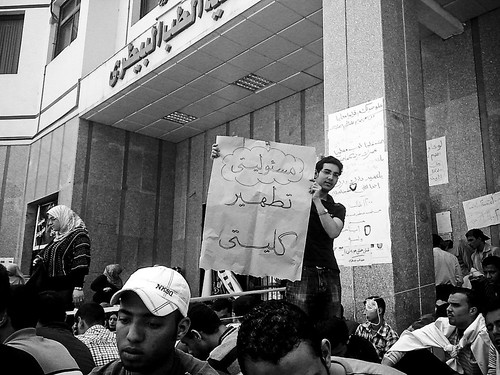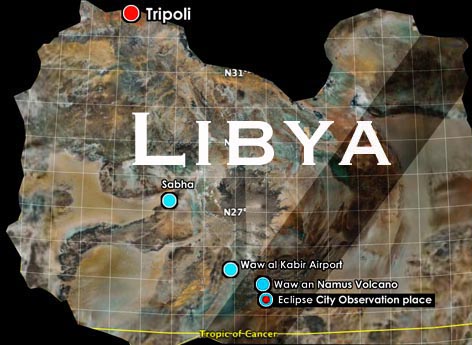The readiness of the European powers to line up almost unanimously behind the imperialist war against Libya is a defining moment in the political life of the continent.
On January 20, 2003, French Foreign Minister Dominique De Villepin said of Iraq, “We believe that military intervention would be the worst solution.” Paris voted against war in the United Nations Security Council.
Together with opposition to the war from Germany, this led to the unedifying spectacle of putative leaders of the antiwar movement amongst “left” groups and the left social democrats hailing Europe as a counterweight to US militarism and even leading chants of “Vive la France!”
In the run-up to the war against Libya, France was in the forefront of demands for military intervention, with the Sarkozy government aligning itself with Britain and Washington against its longtime German ally and publicly denouncing Berlin’s reluctance to back war. With US support, France pushed through UN Security Council Resolution 1973 authorising an attack on Libya. On March 10, 2011, France became the first country in the world to recognise the National Transitional Council as Libya’s government. It led the first air strikes on March 19.
France’s particular enmity towards Libya and the Gaddafi regime stretches back to the civil war in Chad and was made worse by the cargo hold bomb that destroyed France’s UTA Flight 772 in 1989—less than a year after the destruction of Pan Am Flight 103 over Lockerbie. This may have played a part in France’s shift to military intervention in Libya.
More fundamentally, however, it is understandable only from the broader motive of eliminating a regime that France views as an obstacle to its historic imperialist ambitions in Africa. Crucially for Paris, as much as Washington, the mass movement against Western-backed dictatorships in Egypt and Tunisia was seen as a threat to imperialist influence in North Africa. The war against Libya provides the opportunity to install an outright stooge regime and turn Libya in a base of operations against the threat of socialist revolution throughout the region.
Libya is also seen as setting a precedent for further military interventions, with President Nicolas Sarkozy asserting on March 24 that UN Resolution 1973’s citing of the “responsibility to protect” allowed for further interventions in Africa and the Middle East—beginning with the Ivory Coast. Yesterday, French and UN forces opened fire from helicopters on military camps operated by Ivory Coast incumbent leader Laurent Gbagbo. Paris has now sent close to 500 additional troops to reinforce its 1,500-strong military presence in its former colony to ensure the victory of its chosen puppet, Alassane Ouattara.
Similar foreign policy considerations animate other European powers in backing war against Libya.
Washington, through its military might and political influence over the Libyan opposition, intends to beat back the challenge to its domination from both China and the European powers. Prior to the war, US economic influence in Libya was minimal. Italy was Tripoli’s major trading partner, followed by Germany and China.
After the war, the National Transitional Council will be called on to ensure that a new balance is established. But most European powers have nevertheless signed on for a military campaign under US leadership in the hope of not being squeezed out of the division of the spoils of war, and because they, like France, have an overriding interest in the precedent set for similar colonial interventions.
The exception of Germany is not simply a continuation of its position in 2003. In the intervening years, Berlin has pursued a marked orientation towards new alliances that strengthen its position against the US.
Germany abstained on UN Security Council Resolution 1973 alongside Brazil, Russia, India and China—known as the BRICs—and against its NATO allies. Germany has, in fact, been seeking closer relations with Russia for years, on which it relies for its gas supplies. German trade with China is in excess of $100 billion a year.
Berlin may believe that its economic influence in North Africa and the Middle East is the best means of projecting Germany’s global interests, but like its European counterparts it must inevitably face up to the gap between such ambitions and its lack of military muscle if it is to avoid being sidelined by the US. As in the 1930s, mounting geopolitical tensions lead inevitably towards European rearmament.
What accounts for this renewed campaign of imperialist domination?
The financial crash of 2008, which wiped out trillions in paper capital assets, has proved to be a turning point in the fortunes of world capitalism, raising antagonisms between the major powers to a new intensity.
The crash was the culmination of a protracted process in which the US was transformed from the premier world economic power and guarantor of capitalist stability into the leading debtor nation and the chief source of economic and political instability on the world arena. It has no way of reversing its decline and meeting the challenge from rising powers, especially China, as well as its traditional rivals in Europe and Japan, other than to deepen the offensive begun in earnest in Iraq to secure its global military hegemony. China, Europe, et al must and will follow suit. This intensified struggle for markets, profits and resources ultimately threatens the eruption of a third world war.
This crisis also dictates a sustained escalation of the class struggle.
Rescuing the banks by emptying government coffers cost the US and European powers trillions. But it was only the beginning of an economic crisis, the likes of which has no equal since the 1930s. After the bailout comes the macroeconomic impact—the onset of recession and the driving up of state debt to 50 percent, 80 percent, a hundred percent and more of GDP.
The only way the bourgeoisie can claw any of this lost revenue back is through the drastic lowering of working-class living standards—a policy of class war at home to accompany imperialist war abroad. Governments throughout Europe are intent on imposing a fundamental realignment of class forces in the interest of the major corporations and the super-rich by means of historically unprecedented austerity drives involving hundreds of billions of euros in cuts, the slashing of wages and a hike in exploitation.
The connection between the new stage in the eruption of imperialist militarism and the turn to class war against working people is reflected in the media’s routine use of military terminology when discussing the austerity measures being imposed.
The March 24 edition of the Economist notes how far this economic blitzkrieg has already gone. It writes:
“The authorities have applied shock and awe in the form of fiscal and monetary stimulus. They have prevented the complete collapse of the financial sector—bankers’ pay has certainly held up just fine. The corporate sector is also doing well… But the benefits of recovery seem to have been distributed almost entirely to the owners of capital rather than workers. In America total real wages have risen by $168 billion since the recovery began, but that has been far outstripped by a $528 billion jump in profits. Dhaval Joshi of BCA Research reckons that this is the first time profits have outperformed wages in absolute terms in 50 years.
“In Germany, profits have increased by €113 billion ($159 billion) since the start of the recovery, and employee pay has risen by just €36 billion. Things look even worse for workers in Britain, where profits have risen by £14 billion ($22.7 billion) but aggregate real wages have fallen by £2 billion… labour’s share has been in decline across the OECD since 1980. The gap has been particularly marked in America: productivity rose by 83 percent between 1973 and 2007, but male median real wages rose by just 5 percent.”
This is only the beginning of what the ruling elite has in mind.
The attacks levelled against workers will deepen, even as crisis-ridden regimes such as Sarkozy’s in France or the Conservative-led coalition in Britain utilise flag-waving over Libya as a means of diverting attention from their domestic agenda.
The working class must formulate its own response to this fundamental political shift. Just as the bourgeoisie’s foreign and domestic policy is dictated by the global interests of the major corporations and the super-rich elite, so too must workers elaborate their own unified international strategy.
Opposition to war cannot be confined to pacifist appeals to either governments or the United Nations, under whose imprimatur the war against Libya is being waged. Neither can a stand against war be expected from any section of the Labour and trade union bureaucracy. Like the struggle to defend jobs and services, the fight against war requires the waging of the class struggle by the workers themselves.
The only viable answer to imperialist war is the independent political mobilisation of the working class in the struggle to replace the rule of capital with a system based upon social equality and genuine democracy. It means workers setting out to take power into their own hands, linking opposition to war with a struggle for decent jobs, social services, health care and education for all, to be paid for through the redistribution of wealth from the ruling elite to working people—the expropriation of the corporate and financial oligopolies and their conversion into democratically-controlled public enterprises.
Source




